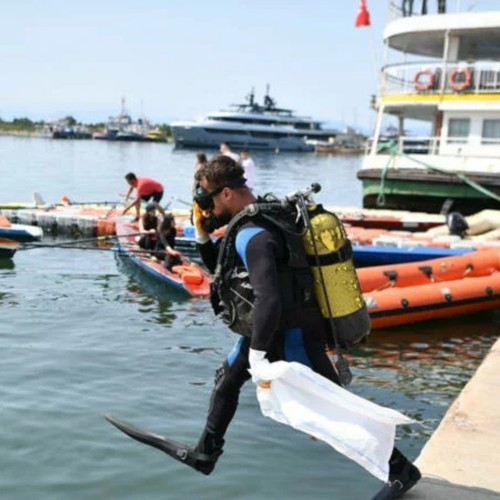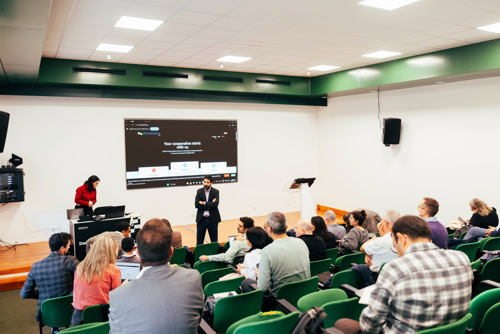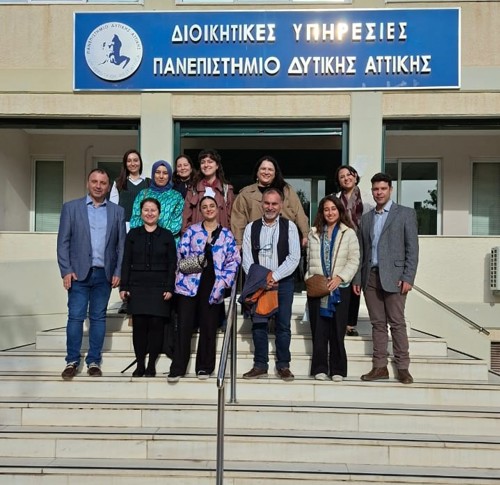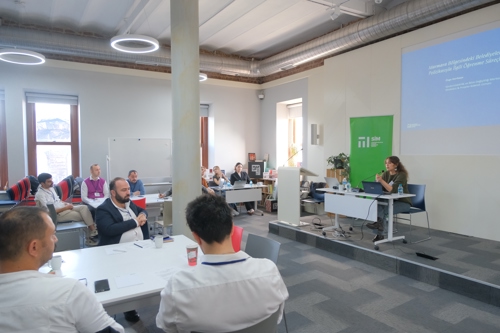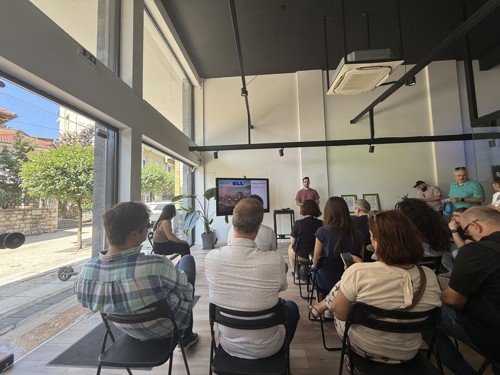A Novel Guide For Risk Management: Integrated Social Service Governance Model
Argüden Governance Academy developed a model in partnership with Sultanbeyli and Maltepe Municipalities from Istanbul and with Marmara Municipalities Union’s contributions to improve the resilience of municipalities in the face of pandemics. The model was introduced at an online panel which was held within the framework of “Government After Shock” events organized by Observatory of Public Sector Innovation (OPSI) which is affiliated with Organization for Economic Cooperation and Development (OECD).
The COVID-19 pandemic reveals that local governments need to improve its pandemic resilience and to have long term strategies and plans to deal with pandemics and similar crises. In response to this need, Argüden Governance Academy developed Integrated Social Service Governance Model in partnership with Sultanbeyli and Maltepe Municipalities from Istanbul and with Marmara Municipalities Union’s contributions.
The model aims to provide social services in an integrated, data-based, and participatory fashion for the most disadvantageous social groups. It was developed by conducting field research and legislative analysis, as well as by examining the lessons from the world. The model is centered around risk governance and resilient city framework. Pandemic and other likely health problems are considered as disaster risks which needs to be dealt with the culture of good governance. Although it is developed and piloted in Istanbul, its design and approach can be considered as good practice for the rest of the country and the world.
On 17 November 2020, as part of OPSI’s “Government After Shock” events, the model was introduced at an online webinar organized by Argüden Governance Academy and Marmara Municipalities Union (MMU) with the participation of the leaders of Sultanbeyli and Maltepe Municipalities. The event was held with the opening speeches of the Mayor of Sultanbeyli Municipality Hüseyin Keskin and Vice-Mayor of Maltepe Municipality Salih Kara under the moderation of M. Cemil Arslan, the Secretary General of MMU. Keskin and Kara presented their experiences and shared the lessons learnt. After the speeches, Erkin Erimez and Inan Izci from Argüden Governance Academy as well as Mehmet Aktaş and Bahadır Keşan as Strategy Development Directors from Sultanbeyli and Maltepe Municipalities respectively presented the model, its development process, main features, and user value.
"We have once again understood the importance of coordination between departments within the municipality"
In his opening speech, Hüseyin Keskin emphasized that the COVID-19 pandemic affected the labor market and institutions in unexpected ways, and said "As institutions that are in close contact with citizens, the importance of municipalities' ability to adapt their capacity and capabilities to such crises has once again become clear.” Keskin stated that as Sultanbeyli Municipality, they tried to easily adapt to the COVID-19 process and quickly determined the steps of possible action. Underlining that the lack of coordination between different departments within the municipality is an important problem in times of crisis, Keskin said, “Each department considers itself as one unit and tries not to let anyone into its field. This creates a serious problem." Adding that in order to prevent the coordination problem, they resorted to exchange municipal staff between departments by considering their capabilities, Keskin said "At such times, assigning our friends to different departments actually causes those walls to collapse."
Salih Kara emphasized that the direction of citizens’ concerns and expectations has changed during the COVID-19 pandemic, and this situation caused Maltepe Municipality to change its working areas. Underlining that the COVID-19 pandemic process is an important opportunity to ensure sustainable urban resilience, Kara said “We had difficulties, but we also gained experience about what we can do next. During this period, we also did things we haven’t done before in our routine municipal activities." Kara also underlined the importance of informing and enlightening the public in crisis situations.
“The concept of risk governance gained significance”
Inan Izci, Local Governance Expert of Argüden Governance Academy, explained how the model was developed and why it is important for resilience at cities. He further expressed that “During COVID-19 pandemic, municipalities became the first contact point for citizens, especially for socially disadvantaged groups which underlined the significance of risk governance. Need for better planning and execution came forward as top priorities. We considered all these dimensions and points in the development of Integrated Social Service Governance Model.”
Erkin Erimez, an Academic Board Member of the Academy, highlighted the fact that the best way to encounter any disaster starts from better planning and preparedness. Erimez underlined his points by saying “During the model development phase, we analyzed the lessons and research outputs from different countries. Combined these with the findings came out from the rigorous field research executed at two different districts. Although it is developed within Turkish context, it is globally generic and usable in different contexts.”
"Data make it possible to manage the process meaningfully”
In his speech, Mehmet Aktaş underlined that the importance of some concepts such as transparency, participation and inclusiveness reappeared in the COVID-19 process. Stating that having data is critical in managing the process better, he said, “If there is data, you can manage the process meaningfully. If you do not have data, you are trying to do something superficial." Aktaş also shared the results of the field research and in-municipality surveys and interviews they conducted.
The last panelist Bahadır Keşan stated that as Maltepe Municipality, they had a data deficiency problem in the first days of the epidemic and emphasized that this situation affected the planning process considerably. Based on this experience, he stated that a common consensus was reached on that data should be addressed while forming the model. Keşan also shared the results of field research as well as surveys and interviews conducted within Maltepe Municipality.

